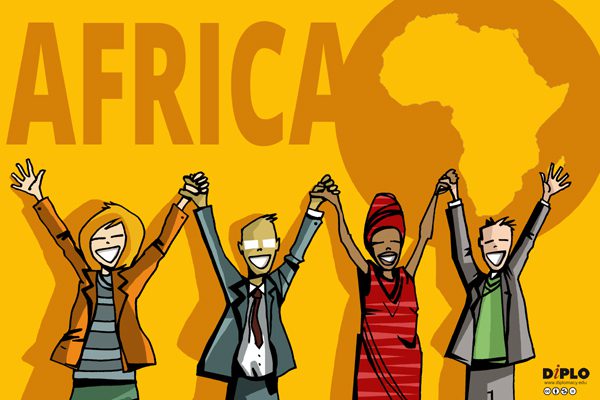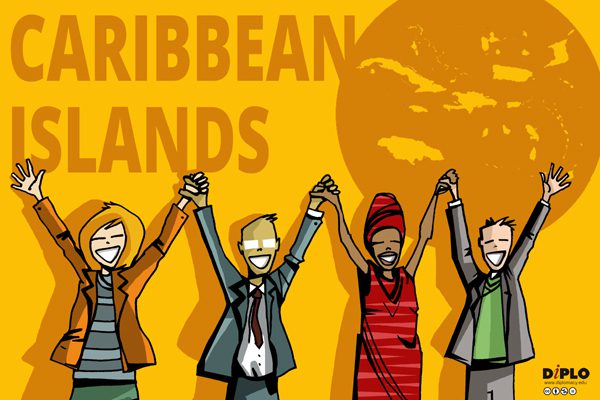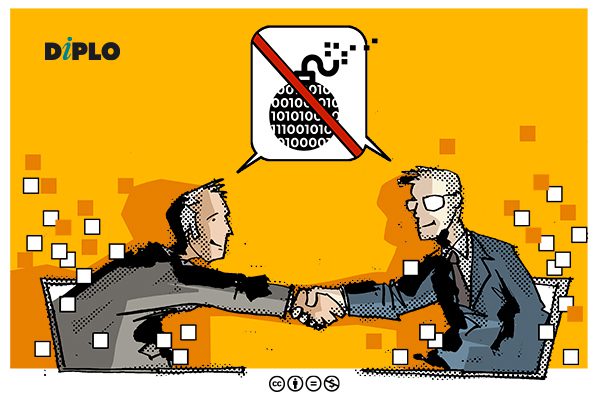International relations and diplomacy
International relations refer to the study of interactions between nations, including their governments, institutions, and societies, on a global scale. This multifaceted field reaches deeply into how countries engage with one another, negotiate agreements, manage conflicts, and collaboratively address pressing global challenges. The essence of international relations lies in understanding the formal diplomatic ties between states and the informal networks that influence international dynamics.
The core concept of diplomacy lies at the heart of international relations, functioning as a critical mechanism through which nations negotiate agreements, manage conflicts, and collaboratively address global challenges. The evolution of diplomacy was significant over time, adapting to changes in the international system. Diplomacy is not merely the act of negotiating; it embodies the strategic art of communication and relationship-building that shapes state interactions.
As we explore international relations and diplomacy, it becomes evident that a complex web of historical, cultural, and political factors governs these interactions. Each nation brings its unique perspectives and interests to the table, which can lead to both cooperative engagements and competitive rivalries. The field examines how nations navigate these relationships through diplomatic strategies, including bilateral and multilateral negotiations, treaty formations, and alliance-building efforts.
Key aspects of international relations
- State interactions: Examining transnational issues—such as migration, trade, and cybersecurity—reveals nations’ complex challenges in a globalised world. These issues often require coordinated responses and innovative diplomatic solutions, as they cannot be effectively managed by individual countries acting in isolation. The study of international relations thus underscores the necessity for a collaborative approach, where diplomacy becomes a tool for fostering understanding and cooperation among diverse nations.
- Global challenges: International relations also address transnational issues like climate change, terrorism, pandemics, and migration, which transcend national borders and require collective action.
- Theoretical frameworks: The field uses various theoretical lenses, such as realism, liberalism, and constructivism, to analyse and explain patterns of state behaviour and global phenomena.
- International organizations and non-state actors: International relations play a crucial role in the functioning of international organisations, such as the United Nations, NATO, and the World Trade Organization. These entities serve as platforms for dialogue and cooperation, allowing countries to come together to tackle issues that transcend national borders, such as climate change, terrorism, and human rights. The study of international relations emphasises the importance of these organisations in fostering stability and promoting peace in an increasingly interconnected world.
In addition to state actors,the field also considers the influence of non-state actors, such as non-governmental organisations (NGOs), multinational corporations, and activist groups. These entities can significantly affect international diplomacy by advocating for specific issues, mobilising public opinion, and holding nations accountable for their actions. This aspect of international relations highlights the evolving nature of diplomacy in the 21st century, where grassroots movements and transnational collaborations increasingly complement traditional state-centric approaches.
Distinctions and connections between international relations and diplomacy
International relations and diplomacy are two foundational pillars that shape the interactions between countries in the global arena. While they share several commonalities, they also possess distinct characteristics that differentiate them. .
At their core, both disciplines aim to facilitate cooperation among nations, promote peace, and address global challenges that transcend borders. They share a common objective: to enhance the welfare of governments and their citizens in an increasingly interconnected world. However, the distinction lies in their scope, methods, and underlying principles.
Similarities between International relations and diplomacy
Diplomacy and international relations are interconnected fields crucial in managing global affairs. While distinct in their functions and approaches, these domains share significant similarities fundamental to understanding the broader dynamics of international interactions.
- Definition and scope: At its core, international relations encompasses the study of the interactions among various global actors, including states, international organisations, non-governmental organisations, and multinational corporations. It examines the political, economic, and social relationships that shape the international landscape.
Conversely, diplomacy refers specifically to the practice of conducting negotiations and maintaining relations between countries. It involves the art of persuasion, negotiation, and dialogue and serves as a mechanism through which states communicate their interests, resolve conflicts, and build alliances.
- Objectives and goals: Diplomacy and international relations aim to foster peace and cooperation among nations. This imperative drives them to understand and navigate the complexities of global issues such as security, trade, human rights, and environmental concerns. The similarity between international relations and diplomacy lies in their shared goal of promoting stability and mutual understanding in an increasingly interconnected world. This alignment is crucial, particularly in addressing transnational challenges that require collaborative responses.
- Tools and methods: The tools employed in both fields also reflect their interconnectedness. For instance, diplomatic strategies—such as bilateral negotiations, treaties, and summits—often rely on the theoretical frameworks established within international relations. Scholars and practitioners alike draw from political science, sociology, and economics to inform their diplomacy and international relations approaches.
Moreover, the use of soft power in diplomacy, which involves influencing other nations through attraction and persuasion rather than coercion, highlights another similarity. Soft power is grounded in the principles of international relations, where cultural and ideological factors play a vital role in shaping perceptions and fostering goodwill among nations.
- Challenges and opportunities: While both fields share common ground, they also face distinct challenges. International relations may be influenced by systemic factors such as global power shifts, economic disparities, and the rise of non-state actors. These elements can complicate diplomatic efforts, as states must adapt to an evolving landscape that requires innovative solutions and flexible strategies.
However, the similarity between international relations and diplomacy also presents opportunities for synergy. Collaborative frameworks, such as multilateral organisations (e.g., the United Nations), exemplify how diplomacy can be leveraged to address international issues effectively. Through constructive dialogue and cooperative initiatives, states can work together to mitigate conflicts and promote shared objectives.
Differences between international relations and diplomacy
The difference between international relations and diplomacy can be highlighted in several key areas:
- Nature of engagement: While international relations encompasses various interactions, including economic, cultural, and military dimensions, diplomacy is primarily focused on negotiation and dialogue. Diplomats strive to build relationships and secure agreements that align with their national interests within the broader context of international relations.
- Objectives: The objectives in international relations may include fostering global stability, advancing economic cooperation, and promoting human rights. In contrast, diplomacy is often more targeted, aiming to achieve specific outcomes, such as conflict resolution, alliance formation, or trade agreements.
- Tools and techniques: International relations utilises various analytical tools and theories, such as realism, liberalism, and constructivism, to assess global trends and power structures. Diplomacy, however, relies on interpersonal skills, negotiation tactics, and strategic communication to navigate complex international landscapes.
- Timeframe: International relations can be seen as more enduring, examining long-term trends and transformations in the global order. Diplomacy, conversely, often operates within shorter timeframes, responding to immediate crises or opportunities for cooperation.
Impact of technology on international relations and diplomacy
While diplomacy and international relations are deeply intertwined, their differences lie in their respective focuses, methodologies, and objectives. Understanding these distinctions enriches our comprehension of how nations interact and underscores both disciplines’ importance in tackling the pressing issues of our time. The interplay between diplomacy and international relations will remain important in shaping a more peaceful and cooperative world as the global landscape expands.
As we transition into the future, the impact of technology on international relations and diplomacy becomes ever more pronounced. The evolution of diplomacy has been significantly influenced by technological advancements, which facilitate real-time communication and enable a more immediate response to international crises. This technological shift has transformed traditional diplomatic practices, allowing for more dynamic engagement and the incorporation of diverse voices in diplomatic dialogues.
In today’s global landscape, the roles of international organisations and non-state actors are increasingly vital. These entities contribute to the complexity of international relations by addressing transnational issues such as climate change, terrorism, and economic inequality. Their participation challenges the notion of state-centric diplomacy and underscores the need for inclusive approaches that account for various stakeholders.
Looking ahead, the future of international relations and diplomacy will likely be shaped by the continued integration of technology, which enhances communication and influences public perception and engagement with diplomatic processes. As nations grapple with emerging global challenges, adapting and innovating within diplomacy will be critical.
The study of international relations is not only about understanding the past; it is about preparing for an uncertain future where the impact of technology will redefine the landscape of diplomacy. Through the lens of historical evolution and contemporary practices, we can appreciate the intricate dance of diplomacy that continues to shape the fabric of global interactions.
While diplomacy and international relations share core elements like negotiation, communication, and representation, they diverge significantly in terms of scope, functions, and analytical levels. Both fields are indispensable for fostering international cooperation, resolving conflicts, and influencing the dynamics of the global system. Understanding their interplay enriches our comprehension of global affairs and the mechanisms that govern them.
Click to show page navigation!













